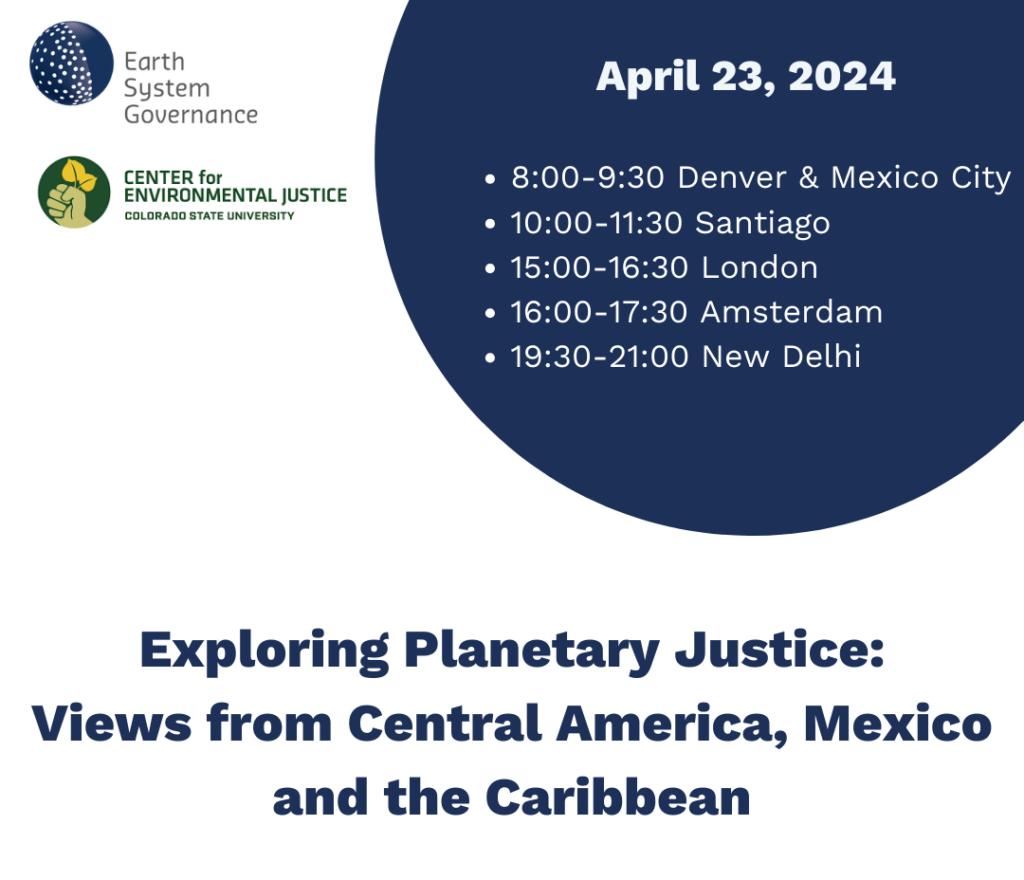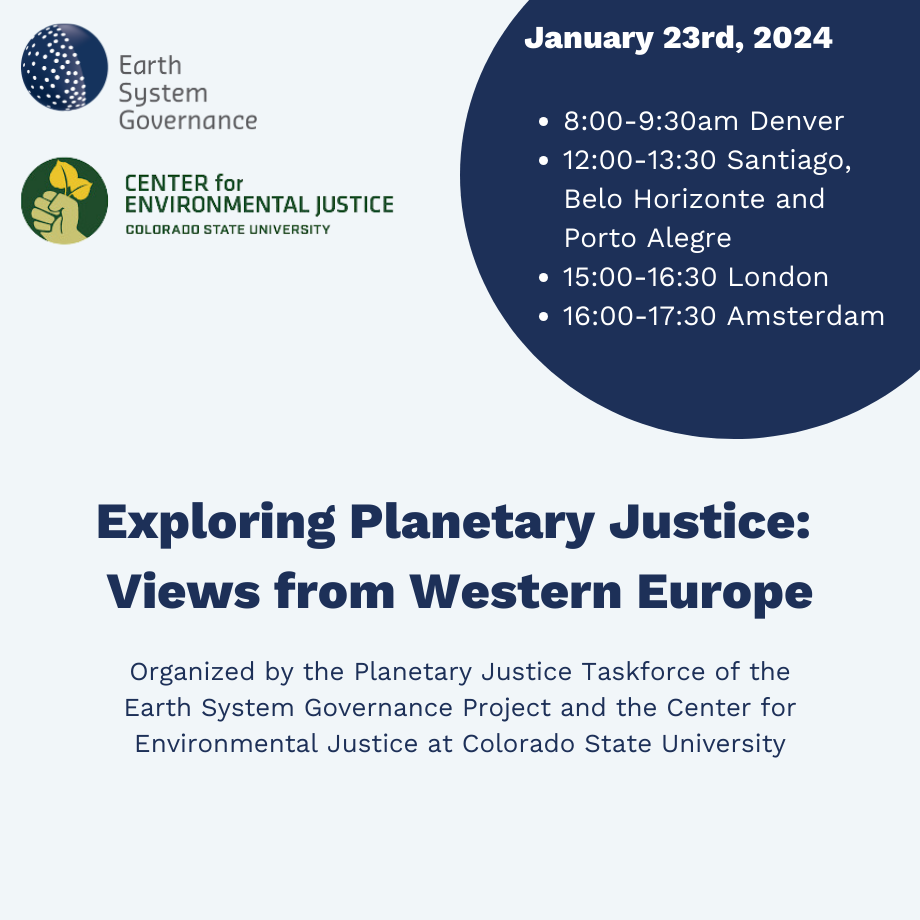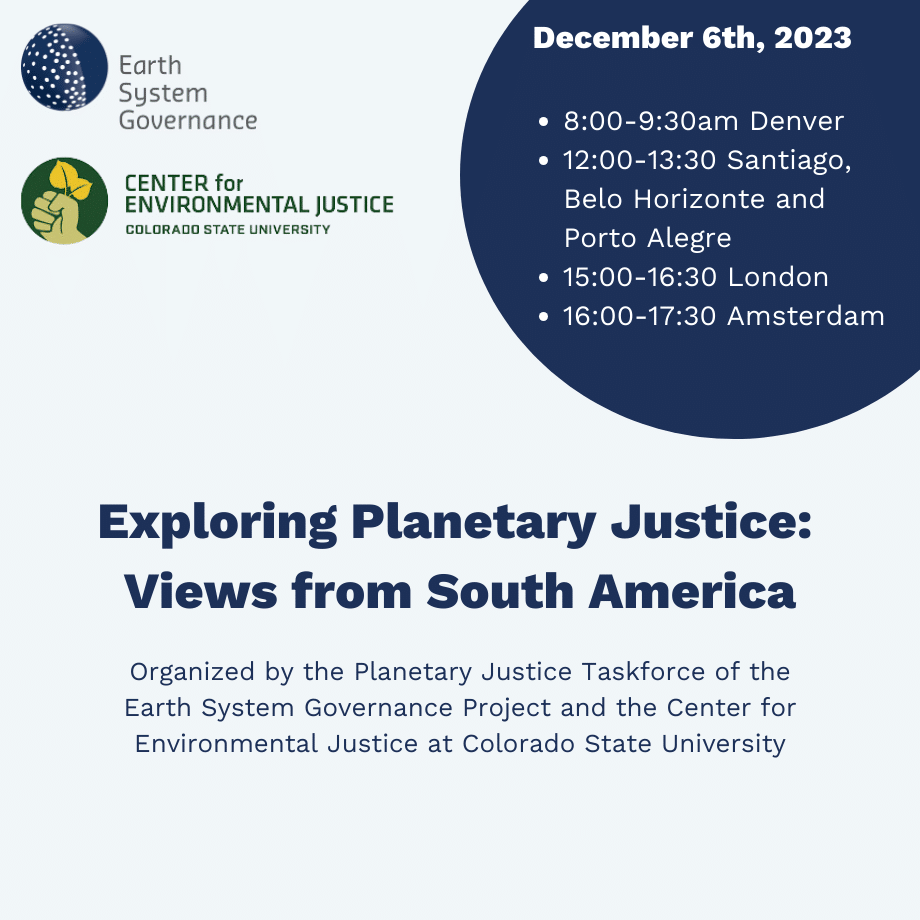The 8th ECPR General Conference will include a conference section endorsed by the Earth System Governance Project on “Politics and Governance in the Anthropocene”. The section is organized and chaired by Philipp Pattberg, Institute for Environmental Studies, VU University Amsterdam, and Fariborz Zelli, Lund University.
Section Abstract
Politics and Governance in the Anthropocene. The term anthropocene denotes a new geological epoch in planetary history, one that is characterized by the unprecedented impact of human activities on the Earth’s ecosystems. Scientists today see mounting evidence that the entire earth system now operates well outside safe boundaries. Human societies must therefore change course and steer away from critical tipping points that might lead to rapid and irreversible change, while ensuring sustainable livelihoods for all. But while the natural sciences have advanced their understanding of the drivers and processes of global change considerably over the last two decades, the social sciences lag behind in developing and implementing a coherent research paradigm to address this fundamental challenge of politics and governance in the anthropocene.
The key question from a social science perspective is how to organize the co-evolution of societies and their surrounding environment, in other words, how to develop effective and equitable governance solutions for today’s global transformations. This section invites panels to close this crucial research gap, in particular with regards to the following 5 overarching research themes: (i) the role and relevance of institutions, both formal and informal as well as international and transnational, for governing in the anthropocene; (ii) the question of agency and actorness in addressing planetary challenges; (iii) the relevance of normative concerns in governing in the anthropocene, including questions about fairness, equity, justice and allocation; (iv) the role and relevance of accountability and other democratic principles for governing in the anthropocene; (v) the challenge of adapting societies at different scales to global change.
Abstracts of Panels
Institutions for the Anthropocene
Panel Chair: Earth System Governance Research Fellow Kacper Szulecki, Hertie School of Governance.
The panel addresses the emergence, design and effectiveness of governance systems and their integration across scales levels. How does the increasing institutional fragmentation of environmental governance impact on effectiveness and legitimacy? Which discursive shifts and societal transformations are reflected in this institutional architecture? How do transnational and informal institutions contribute to governing the anthropocene?
Agency in the Anthropocene
Panel Chair: Earth System Governance Senior Research Fellow Agni Kalfagianni, Institute for Environmental Studies, VU University Amsterdam.
Submissions to this panel scrutinize the influence, roles and responsibilities of non-state actors, such as business and non-profit organizations. This includes the ways in which authority is granted to these agents, and how it is exercised. And also: how can we evaluate the relevance of these agents in governing the anthropocene?
Allocation and Access in the Anthropocene
Panel Chair: Earth System Governance Lead Faculty member Karin Bäckstrand, Lund University.
The novel character of earth system transformation puts questions of justice, fairness, and equity in a new light. How can we reach interdisciplinary conceptualizations and definitions of access to goods and their allocation? What (overarching) principles underlie allocation and access? Which role do or should inter-spatial and inter-generational concepts of agency play here?
Accountability in the Anthropocene
Panel Chair: Earth System Governance Senior Research Fellow Aarti Gupta, Wageningen University.
We need to understand the democratic quality of governing the anthropocene. What are the sources of accountability and legitimacy in a changing governance architecture? What are the effects of different forms and degrees of accountability and legitimacy for the performance of governance systems? How can mechanisms of transparency ensure accountable and legitimate environmental governance?
Adapting to the Anthropocene
Panel Chair: Dave Huitema, Institute for Environmental Studies, VU University Amsterdam (tbc).
Earth system governance must respond to the inherent uncertainties in human and natural systems. It must combine stability to ensure long-term governance solutions with flexibility to react quickly to new findings and developments. But what are the politics of adaptiveness? Which attributes of governance systems enhance capacities to adapt?
The section and panel chairs welcome papers or additional panels. The section provides ample opportunities for submissions on a variety of environmental governance topics across sectors and scales.
To submit a panel or paper, please note that this needs to be done through the official ECPR website.
The deadline for submissions is 15th February 2014.
Please find detailed submission guidelines here.



